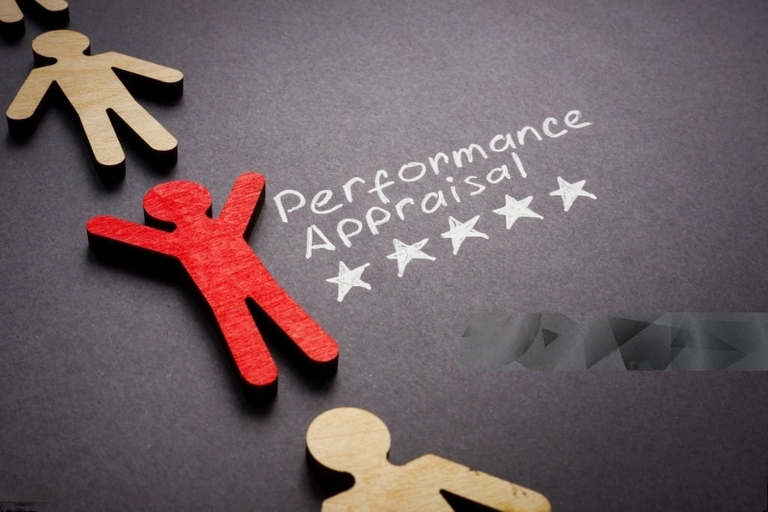
In today’s dynamic work environment, organizations are increasingly recognizing the value of empowering their employees. One effective way to achieve this is through the implementation of self-assessment in performance appraisal processes. By allowing employees to take an active role in evaluating their own performance, organizations can foster a culture of transparency, accountability, and continuous improvement.
Introduction to Self-Assessment in Performance Appraisal
Performance Appraisal is a crucial aspect of organizational management, providing valuable insights into employee performance and contributing to informed decision-making. Traditionally, performance appraisals have been conducted by supervisors or managers, often resulting in a one-sided evaluation that may not fully capture the employee’s perspective.
Importance of Empowering Employees
Enhancing Engagement
Empowering employees through self-assessment enables them to take ownership of their performance and development. This sense of ownership fosters greater engagement, as employees feel more invested in their work and motivated to excel.
Fostering Accountability
Self-assessment encourages employees to reflect on their strengths and weaknesses objectively. By holding themselves accountable for their performance, employees become more proactive in identifying areas for improvement and taking necessary actions to address them.
How Self-Assessment Works
Setting Goals
Self-assessment begins with setting clear and achievable goals. Employees are encouraged to define their objectives and establish measurable targets that align with organizational priorities.
Reflective Exercises
Employees engage in reflective exercises to evaluate their performance against predetermined criteria. This may involve reviewing past accomplishments, identifying areas for growth, and assessing their skills and competencies.
Evaluation Criteria
Self-assessment relies on predefined evaluation criteria to ensure consistency and fairness. These criteria may include key performance indicators, behavioral competencies, and alignment with organizational values.
Benefits of Self-Assessment
Personal Growth
Self-assessment provides employees with valuable insights into their strengths and areas for development. By taking ownership of their growth journey, employees can pursue targeted learning opportunities and enhance their skills and competencies.
Improved Communication
Self-assessment encourages open and honest communication between employees and managers. By sharing their perspectives and insights, employees contribute to a more comprehensive understanding of their performance and development needs.
Tailored Development Plans
Self-assessment facilitates the creation of personalized development plans that address individual strengths and weaknesses. By tailoring learning and development initiatives to meet specific needs, organizations can maximize employee potential and drive overall performance.
Challenges and Solutions
Overcoming Biases
One of the challenges of self-assessment is the potential for biases to influence perceptions. To mitigate this risk, organizations can provide training and resources to help employees evaluate their performance objectively and impartially.
Providing Support and Guidance
Effective self-assessment requires ongoing support and guidance from managers and supervisors. By offering constructive feedback and coaching, managers can help employees navigate the self-assessment process and identify areas for improvement.
Best Practices for Implementing Self-Assessment
Establishing Trust
Trust is essential for the success of self-assessment initiatives. Organizations must create a supportive and non-judgmental environment where employees feel comfortable sharing their thoughts and experiences.
Encouraging Honesty
Honesty is paramount in self-assessment. Employees must feel empowered to provide candid feedback about their performance, acknowledging both their achievements and areas for development.
Providing Feedback
Feedback is a critical component of the self-assessment process. Managers should provide timely and constructive feedback to acknowledge employee efforts, reinforce positive behaviors, and address areas needing improvement.
Real-life Examples of Successful Implementation
Several organizations have successfully implemented self-assessment in their performance appraisal processes. Companies like Google and Adobe have adopted innovative approaches to empower employees and drive performance excellence.
Conclusion
Empowering employees through self-assessment in performance appraisal is a strategic initiative that yields significant benefits for both individuals and organizations. By fostering a culture of transparency, accountability, and continuous improvement, organizations can unlock the full potential of their workforce and achieve sustainable success.
FAQs
Q. How often should self-assessment be conducted?
A. Self-assessment can be conducted on a regular basis, such as quarterly or annually, depending on organizational preferences and objectives.
Q. Can self-assessment replace traditional performance reviews?
A. Self-assessment complements traditional performance reviews by providing additional insights and perspectives. It should be integrated into existing appraisal processes for maximum effectiveness.
Q. What role do managers play in the self-assessment process?
A. Managers play a crucial role in supporting and guiding employees through the self-assessment process. They provide feedback, coaching, and assistance in setting development goals.
Q. How can organizations ensure the integrity of self-assessment results?
A. Organizations can promote integrity by establishing clear evaluation criteria, providing training on unbiased assessment techniques, and fostering a culture of openness and transparency.
Q. What are some common pitfalls to avoid when implementing self-assessment?
A. Common pitfalls include lack of clarity in evaluation criteria, insufficient training and support for employees, and failure to act on feedback received. Organizations should address these issues proactively to ensure the success of self-assessment initiatives.








